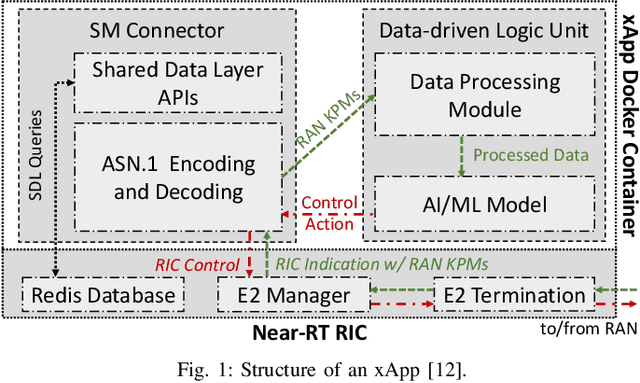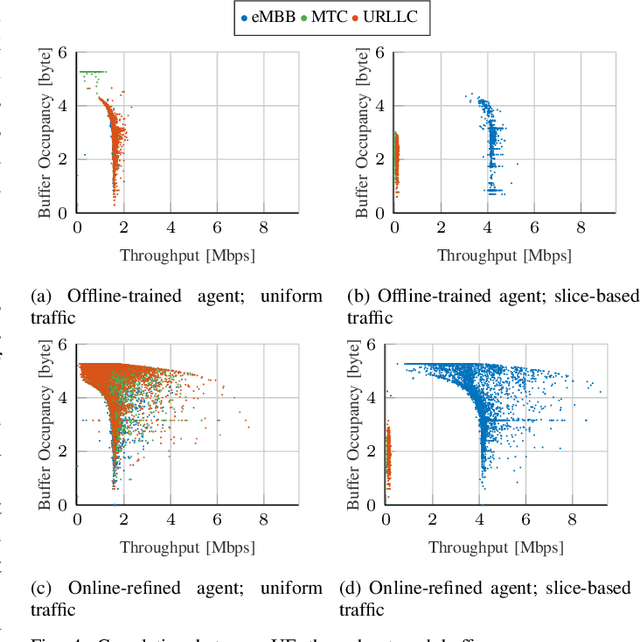Intelligent Closed-loop RAN Control with xApps in OpenRAN Gym
Paper and Code
Aug 31, 2022



Softwarization, programmable network control and the use of all-encompassing controllers acting at different timescales are heralded as the key drivers for the evolution to next-generation cellular networks. These technologies have fostered newly designed intelligent data-driven solutions for managing large sets of diverse cellular functionalities, basically impossible to implement in traditionally closed cellular architectures. Despite the evident interest of industry on Artificial Intelligence (AI) and Machine Learning (ML) solutions for closed-loop control of the Radio Access Network (RAN), and several research works in the field, their design is far from mainstream, and it is still a sophisticated and often overlooked operation. In this paper, we discuss how to design AI/ML solutions for the intelligent closed-loop control of the Open RAN, providing guidelines and insights based on exemplary solutions with high-performance record. We then show how to embed these solutions into xApps instantiated on the O-RAN near-real-time RAN Intelligent Controller (RIC) through OpenRAN Gym, the first publicly available toolbox for data-driven O-RAN experimentation at scale. We showcase a use case of an xApp developed with OpenRAN Gym and tested on a cellular network with 7 base stations and 42 users deployed on the Colosseum wireless network emulator. Our demonstration shows the high degree of flexibility of the OpenRAN Gym-based xApp development environment, which is independent of deployment scenarios and traffic demand.
 Add to Chrome
Add to Chrome Add to Firefox
Add to Firefox Add to Edge
Add to Edge